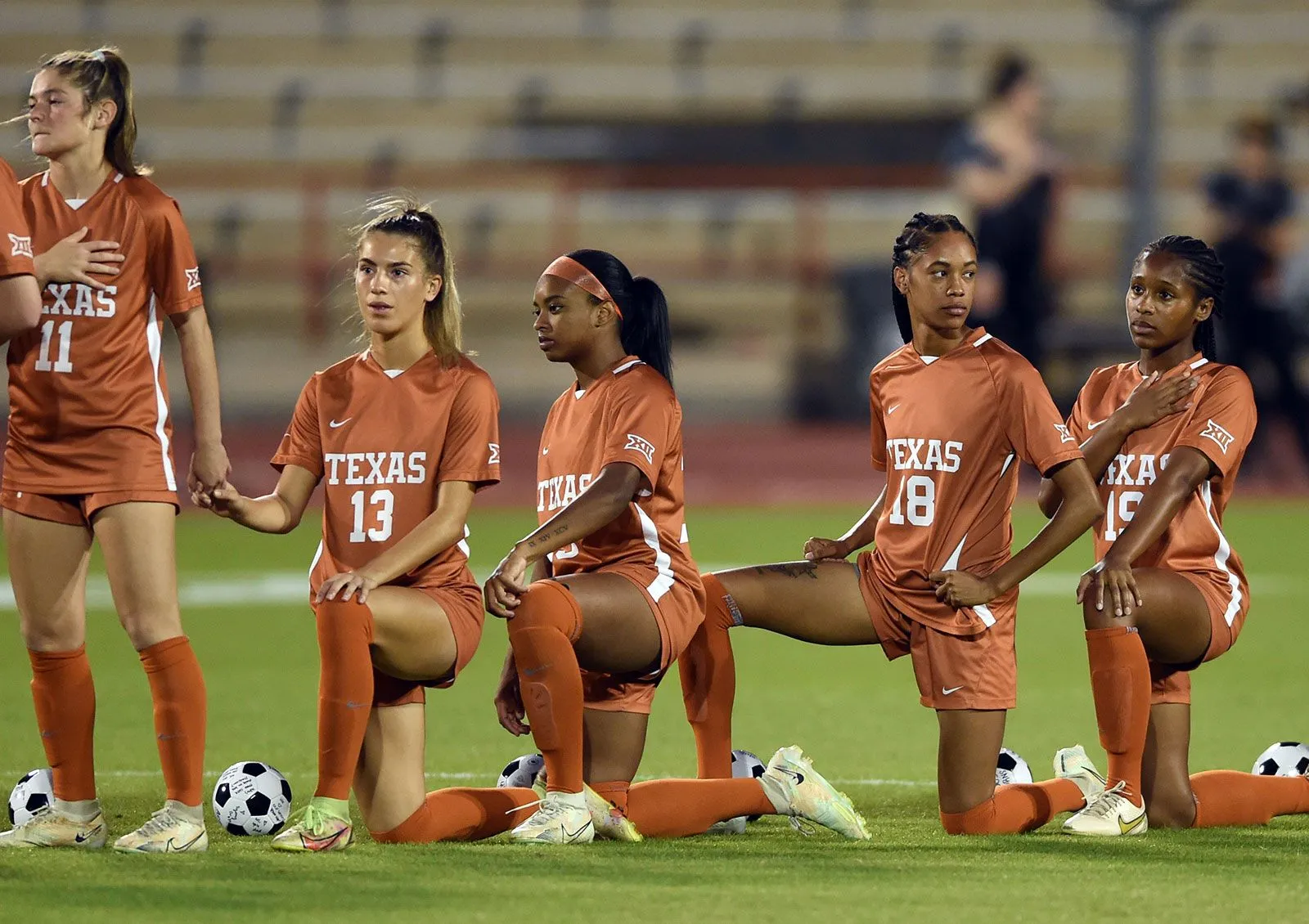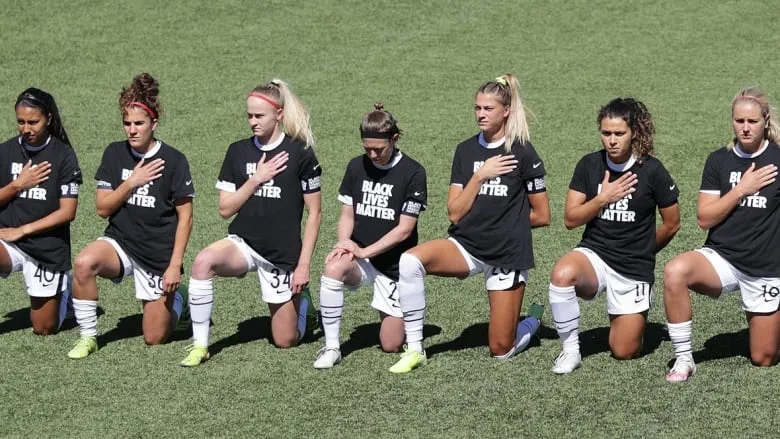A recent decision to revoke the scholarships of ten college athletes who knelt during the National Anthem has sparked nationwide debates. The athletes, who intended their actions as a peaceful protest against systemic injustice, now find themselves at the center of a heated controversy. Their actions and the university’s response have raised significant questions about freedom of expression, institutional values, and the intersection of sports and politics.
The protest occurred during a widely televised sporting event, with the athletes kneeling as a statement against racial inequality and police brutality. While many view this as a legitimate act of resistance, others see it as disrespectful to the values symbolized by the National Anthem. This divide has fueled intense discussions online, on college campuses, and in the media.
In response to the protest, the university’s athletic department announced the revocation of the athletes’ scholarships, citing violations of conduct policies. Critics argue that the punishment is excessive and undermines the athletes’ right to peaceful protest. Supporters of the decision maintain that respect for national symbols is paramount, particularly in a sporting context.
The athletes have expressed disappointment, emphasizing that their actions were not meant as disrespect but as a call for justice. A former coach defended their protest, stating that penalizing peaceful expression discourages open dialogue on critical issues.
The legality of revoking scholarships under these circumstances is a contentious issue. While private institutions have the authority to enforce conduct rules, public universities must balance institutional policies with the First Amendment rights of students. Legal experts highlight this gray area, noting the tension between free speech protections and institutional standards.
This incident is the latest in a long history of athletes using their platforms to address social and political issues. From Muhammad Ali’s anti-Vietnam War stance to Colin Kaepernick’s kneeling protests, sports have often been a stage for meaningful change. However, these actions frequently spark controversy, underscoring the delicate balance between personal expression and institutional norms.
The current situation underscores this tension, raising broader questions about how sports and politics intersect in modern society. Supporters of the athletes argue that their actions highlight critical issues, while opponents believe sports should remain a space for unity and apolitical engagement.![NWSL: Rachel Hill explains why she didn't kneel with Casey Short [Video]](https://lux.carmagazine.tv/wp-content/uploads/2025/01/image_6785cd2397736.webp)
As the athletes appeal the decision, the outcome could set a precedent for how future protests are handled in collegiate sports. Critics worry that such severe consequences could discourage students from expressing their beliefs, while others see this as an opportunity to redefine the boundaries between institutional values and individual rights.
This controversy also illustrates the growing difficulty in separating sports and political discourse. It serves as a reminder of the power athletes have to spark conversations and challenge societal norms, even in the face of significant personal consequences.
The decision to revoke these scholarships has ignited a nationwide discussion on the limits of free expression in sports and the role of institutions in managing protests. While the athletes’ futures remain uncertain, the broader questions raised by this incident will continue to shape conversations about the evolving relationship between sports, politics, and societal change.
